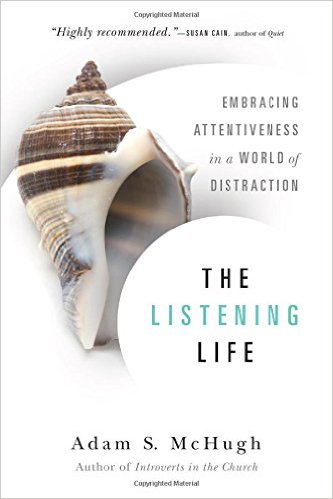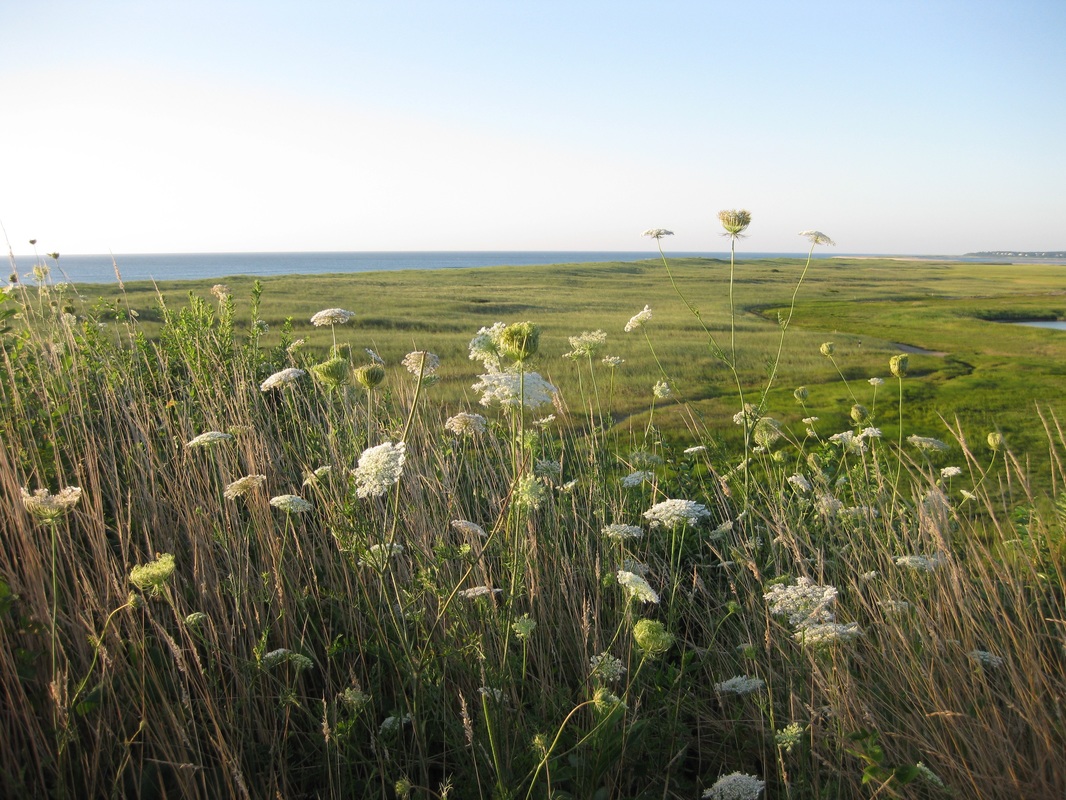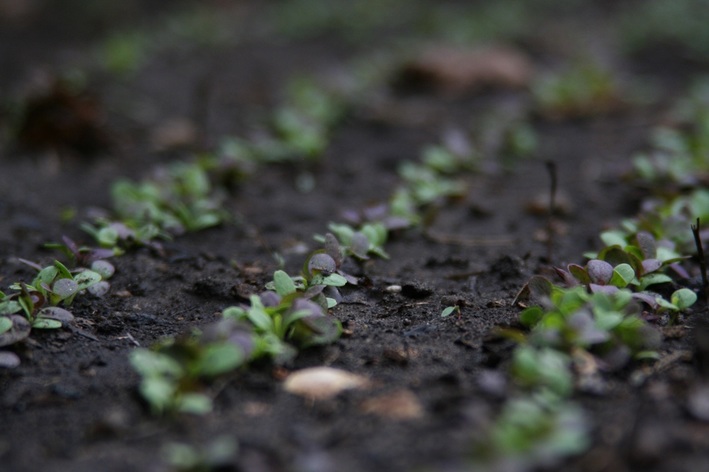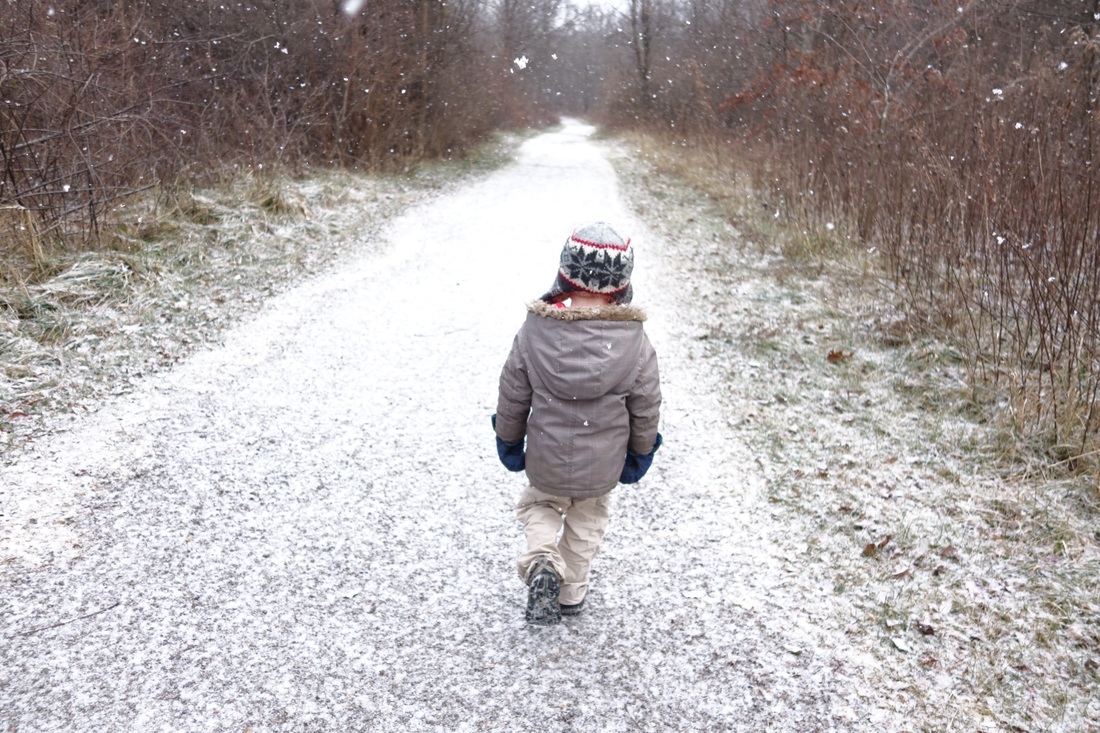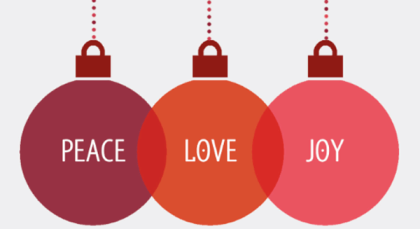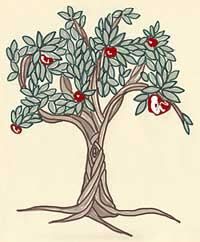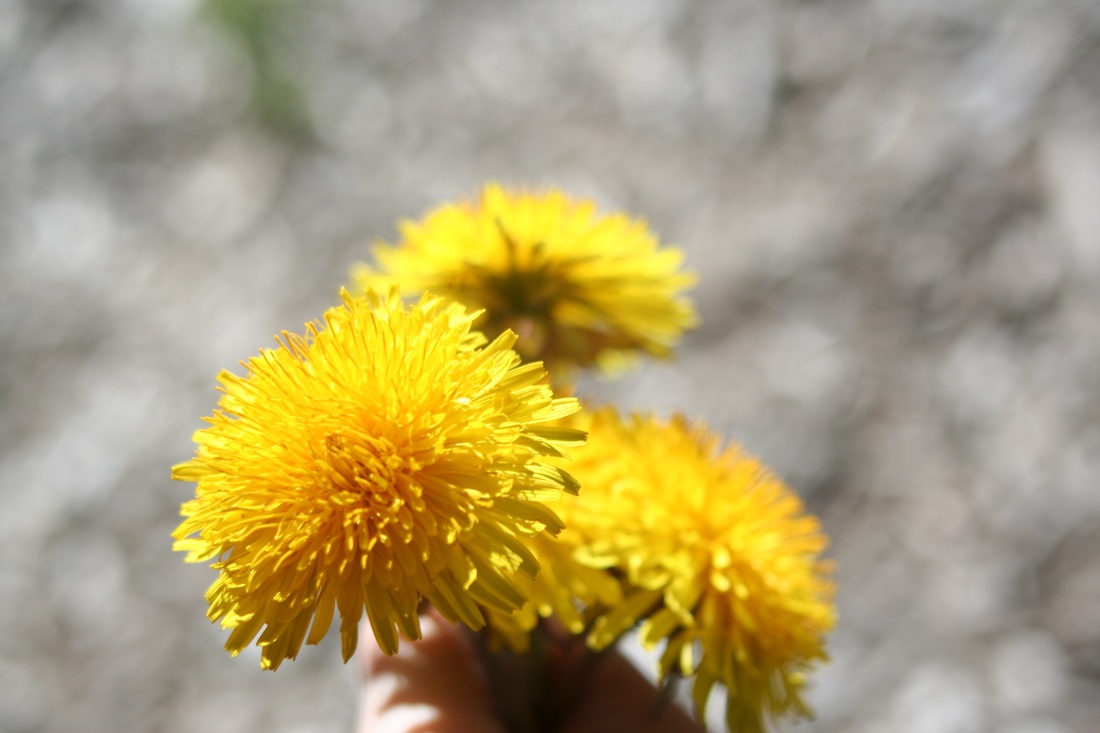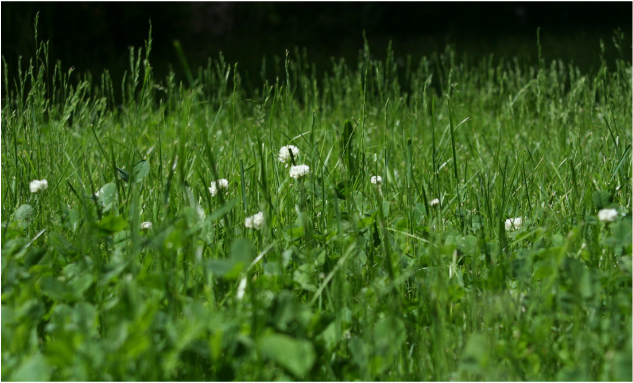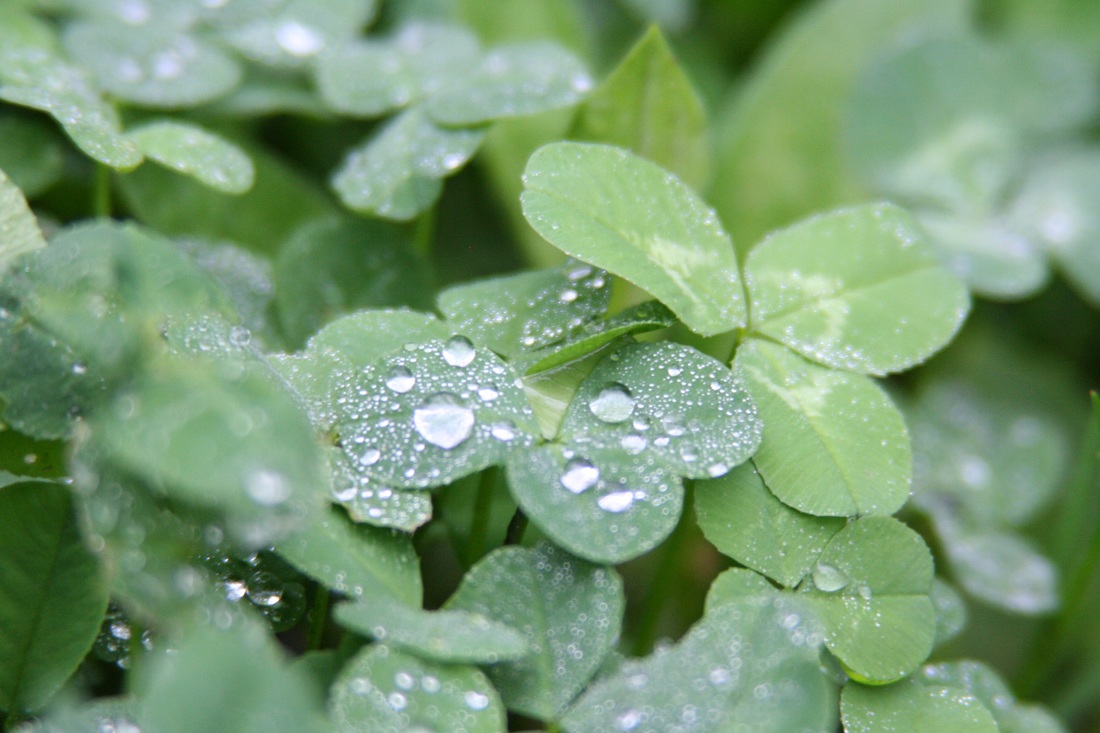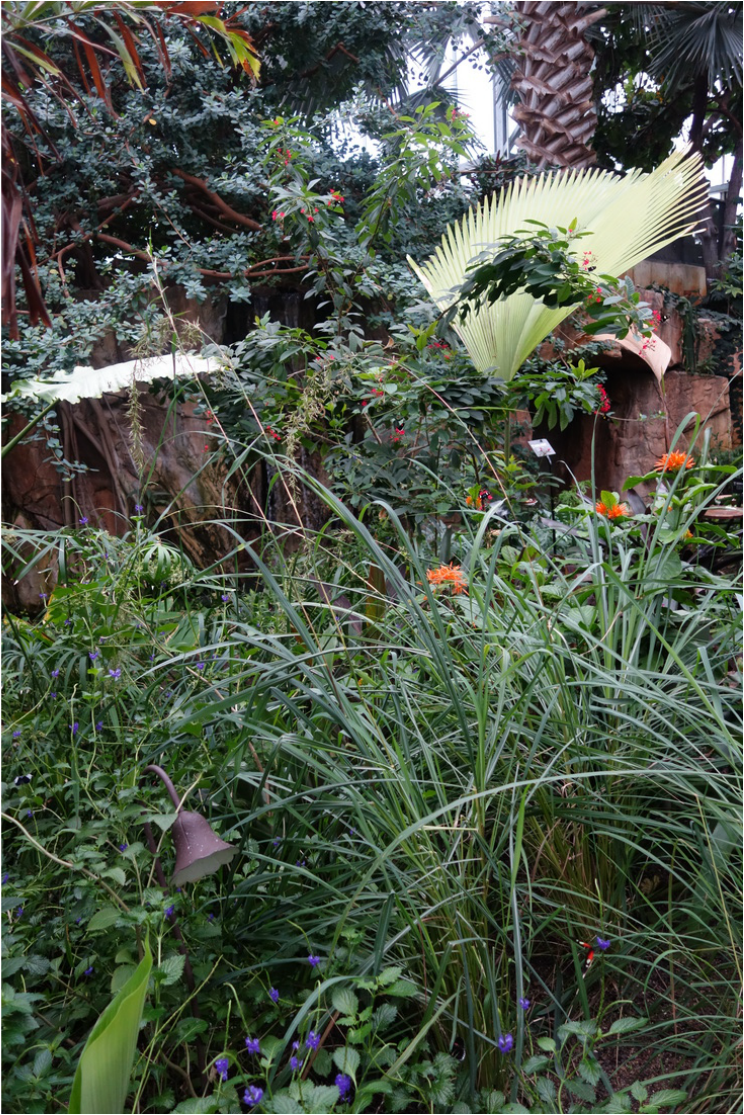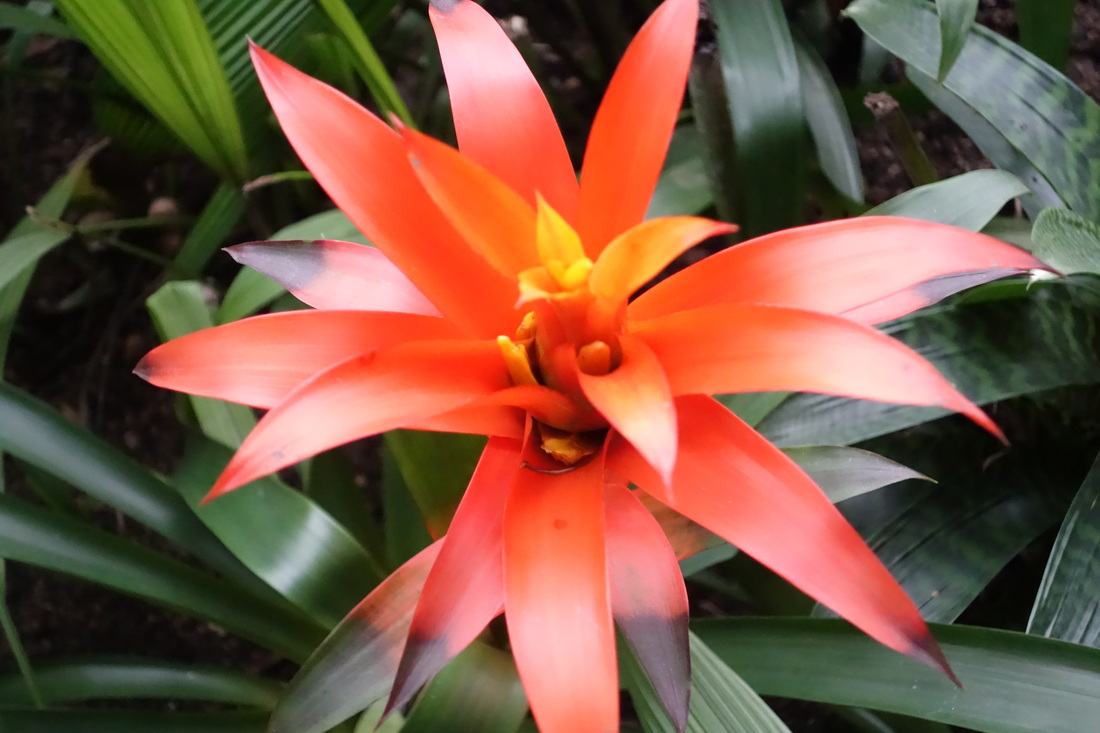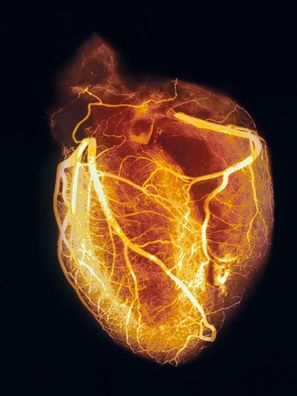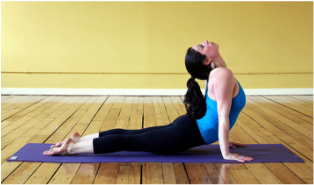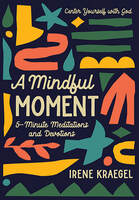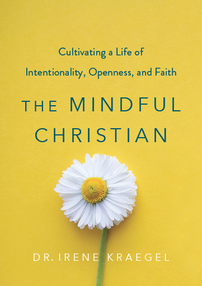|
Mindfulness, at the heart of it, is about listening -- listening to our present-moment experience in a way that allows us to be fully awake to life. Because God infuses each moment with Himself, we have the opportunity to encounter God in this type of life-listening. When we are listening in the moment, we can hear God. God's voice fills the universe, and when we listen to any agent we are potentially listening to God. - The Listening Life (p 62)
McHugh reminds us of God's listening nature toward us. And he casts a vision of a listening church, "a place where leaders listen to followers, adults listen to children, men listen to women, the majority listens to the minority, the rich listen to the poor, and insiders listen to outsiders" (p 203). He urges us toward a stance of listening towards those we love and those who have hurt us, those we think we know and those we don't know at all. He highlights the role of attending carefully to our thoughts, emotions, and bodies if we are to grow personally and to love others well. He encourages an open and gracious stance toward all of life's moments, toward the pain as well as the joy, noting that "loving your enemies will also mean learning to love the enemy voices in your head" (p 181). McHugh manages to be gentle, kind, and funny, while also motivating his reader toward growth and transformation. We learn how to listen because we want to learn how to love. The Listening Life is a beautiful book, inspiring in its simplicity and depth. Read it! You will not be disappointed. Or if you are, simply observe that emotion with curiosity and openness to your experience, just as it is in the moment. Perhaps God will be speaking to you :).
1 Comment
In the Lenten service I attended this morning, a man I don't know smeared ashes on my skin and told me “Remember that you are dust, and to dust you shall return.” Our familiarity with this ancient phrase might lead us to romanticize these words of Ash Wednesday as poetic, but let’s be honest about what this person was saying to me: ‘You are going to die and your body will turn into dirt.’ We typically wouldn't say this to our worst enemy. So why would I intentionally seek out someone to tell me this once a year? And even allow this person to smear dirt on me, in case there might be any confusion about exactly what my body will turn into? Death is a reality that smacks us in the face every time it comes around. It has a way of taking us off guard, sneaking up on us, despite it being one of the only things in the world that is for sure. We don't know when it will come, we only know that there is no avoiding it. I will die. My body will turn into dirt. I am dust. I have been contemplating the implications of this reality, this inevitability of death. How can our life be informed by our inevitable death? How then should we live? Jesus tells us. “If any want to become my followers, let them deny themselves and take up their cross and follow me. For those who want to save their life will lose it, and those who lose their life for my sake will find it. For what will it profit them if they gain the whole world but forfeit their life? Or what will they give in return for their life?" (Matthew 16:24-26) Life in this body is not something to try and save. I am not to hold onto my life, not that I can live forever anyway. There is not a breath I take, not a moment I am given, that is not a gift from the Creator. This breath...and then this one...and then this one... Each given directly from God, loaned to me during my time on earth. I am a person with a body only because that's how God set things up for me, for now. Remembering my mortality sets me back into my proper place as the creation, not the Creator.
This can be terrifying, and it can also be freeing. It can free me up to live small in the world, to focus on being rather than to doing. It can free me up to accept the gift of each moment with nothing to prove. Remember that you are dust. This can be terrifying, and it can also be humbling. That self-righteous attitude I'm carrying around? That anger I harbor toward my neighbor? That pride I feel about my accomplishments, and that fear I feel of failure? Remember that you are dust. This can be terrifying, and it can also be invigorating. Life is a terrific adventure. We live in these incredibly fragile, incredibly strong bodies -- jars of clay. Within us lives the Holy Spirit of God. Indwelling our dust is God himself. God loves this dust, enough to join in the dusty adventure on earth himself for a time 2000 years ago, enough to inhabit our jars today. Remember that you are dust. Let's live with honesty about our lives, about our deaths. Know that we are jars of clay, made not of our own hands. Let's be fully mindful of each moment that we can, knowing that there is no joy in trying to hold on forever to this perishable life. Drink of each moment as it comes, and find that which is deeper than these bodies of dust--God's spirit deep within, sustaining us throughout this life and the life to come. “Remember that you are dust, and to dust you shall return.” It's a snowy day, frigid cold, and the wind is flailing icy flakes against my face. I walk quickly along the sidewalk, shoulders hunched over, chin tucked down into my scarf, hands shoved into my pockets. Arriving at the bus stop, I huddle with the other passengers as we wait for our ride. We all turn our heads to the left, staring intently at the point in the road where the bus will first be seen, as if we can will the bus into being just with the intensity of our gaze. My mind inevitable wanders to all the other things I could be doing with this time of waiting, finding opportunity to berate myself for not getting life quite right. Despite all the challenges, this is a familiar scene to me, comforting in its commonness. I often chuckle during these wintry busing experiences at the wasted effort. The quick walk, the hunched shoulders, the tucked chin, the shoved hands, the eyes searching for the bus -- the strain. These auto-pilot reactions of my body (often with auto-pilot thoughts of "this is miserable, I've gotta' get out of this") actually do nothing to reduce the unpleasantness of my experience. They simply increase the strain. So now I am cold AND physically tense, guarded against the mild unpleasantness of cold weather and unpredictable transportation with enough force to stop a mac truck. My mind's wandering through the other places I can be does nothing to change the reality that I am HERE. It simply adds unhappiness to my experience, a sense of dis-ease. A strain. This strain, this wasted effort, is ubiquitous in our human experience. We tense ourselves in resistance to all types of mild (and major) discomforts, real or imagined. In doing so, we add to our suffering unnecessarily. When I practice yoga, I find muscles contracted that have no role in a pose. When I lay awake on a sleepless night, I find my forehead creased with tension. When my child acts up in public, I find my mind fixated on what his next behavior will be. When my spouse appears tired, I find my defenses on high alert because he might be mad at me. These are all real-life challenges that only become more challenging through my resistance. In some ways, these are challenges largely because of my resistance.
Mindfulness meditation gives us an opportunity to notice the resistance to our experience, to notice the strain. Occasionally that strain is helpful. More often, it's not. And we can choose to let go of the strain against how things are. We can choose to be friendly with our life experiences exactly as they are, to be open to ourselves exactly as we are. I can't control the wintry weather, but I can choose to walk with my shoulders relaxed and my head high, with my hands at my sides and my thoughts curious about the moment. Will I be any less cold? Probably not, but I certainly won't be any colder. And having given up the strain, I will be giving myself a chance to enjoy the moment given to me by God. Yes, our God dwells even in the icy snow flakes and winter winds -- there is nowhere we can go from his presence (Psalm 139). So let's be mindful of the resistance, let go of unnecessary strain, open ourselves up to the moment, and see if we catch a glimpse of God in what we find there. Christmas is an oddly frenetic time. Sometimes I am amazed that the most basic of Christmas traditions in America can be accomplished by anyone. (Seriously, Christmas trees are a lot of work!) And yet the refrains of the season highlight our communal heart's longing for LOVE, JOY, and PEACE. The fruit of the Spirit. ...the fruit of the Spirit is love, joy, peace, patience, kindness, generosity, faithfulness, gentleness, and self-control. There is no law against such things. And those who belong to Christ Jesus have crucified the flesh with its passions and desires. If we live by the Spirit, let us also be guided by the Spirit. Let us not become conceited, competing against one another, envying one another. Galatians 5:22-25 Fruit is not produced on a tree by sheer force of will. We must make the conditions right and tend to the soil. Fruit trees need to be planted in the right climate, and then they need sunlight, water, healthy soil, and protection from damage. They also need pruning. I really want peace, love, and joy this year. I can't make that happen for the whole world, but I am learning how to make the conditions right in my own heart. Here are some of the ways that I aim to cultivate a healthy "Spirit fruit tree" this Christmas season:
Peace, love, and joy are God's fruit, not my own. When I create these spaces and rhythms for abiding in God, His fruit has an opportunity to grow. You have already been cleansed by the word that I have spoken to you. Abide in me as I abide in you. Just as the branch cannot bear fruit by itself unless it abides in the vine, neither can you unless you abide in me. I am the vine, you are the branches. Those who abide in me and I in them bear much fruit, because apart from me you can do nothing. John 15:3-5 I encourage you to give yourself time and space to observe the health of your fruit tree during this Christmas season. Notice which Christmas activities are facilitating openness to God's Spirit, creating healthy conditions for fruit production, and which activities are blocking you from opportunities to abide in God's Spirit. When we pay attention to God's presence, He will produce His fruit: love, joy, and peace. Merry Christmas!
I've got a perfect body. What comes to your mind when you hear this statement? It's actually a lyric from a Regina Spektor song (Folding Chair) that goes like this: I've got a perfect body, though sometimes I forget  Eyelash functionality is probably not what you thought of when you heard perfect body :). We're used to thinking of perfect bodies in terms of largely unattainable goals related to weight, height, facial features, and skin type. Lots of time and money is spent convincing us that we can and should reach for these unattainable goals... that our bodies need to be different than they are in order to be beautiful... that if we could just change our bodies, we would find the love that we long for. But wow, have you ever noticed how your eyelashes catch your sweat? I never had until I heard this song. Eyelashes are downright amazing. They shield the eye from irritation and infection, alert the eye to close when a foreign object is too close, filter out sunlight, and reduce evaporation of moisture in the eye by diverting air flow. They provide a home for tiny mites that clean follicles and prevent stys. Eyelashes regenerate themselves within two months when they fall out, and they are connected with numerous other systems in the body that keep our bodies healthy and functional. Eyelashes are amazing. 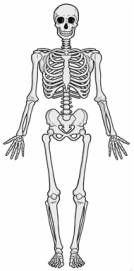 I don't know all of those eyelash facts by heart, and I had to ask for help from my friend Google to find them. When I googled "how eyelashes work," the first page of search results included two sites about how eyelashes work and eight sites telling me how to change my eyelashes. In case you're interested, options include growing them longer (eyelid massage anyone?), adding extensions (for up to $500), dying them (with a possible side-effect of blindness), or perming them. (Perming eyelashes?!) This is the world we live in. There is nothing about our bodies that is safe from critique and suggestion -- we are bombarded with tips about how to change so that we can be more beautiful and lovable. Sadly, there are not a lot of articles out there that recommend admiring your body as it is because it's already beautiful and amazing. There are not a lot of photo shoots highlighting the miraculous functionality of your body, but plenty offering up aspirational images of what your body "should" look like to be worth having around. So let me be one voice proclaiming the truth about this temple that God created for His Spirit to dwell in (1 Cor. 6:19). YOUR BODY IS AMAZING. Your body is perfect. Just as it is. For a taste of what this glorious reality feels like, I recommend some mindfulness practice. Do a body scan meditation that gets you in touch with the sensations of your body, one area at a time -- noticing "what sensations are present for you in the toes, on the bottom of the foot, inside of the foot..." Do a sitting practice that allows you to observe the amazing phenomenon of your body breathing itself, moment by moment, without any instruction whatsoever from your conscious brain. Do a lovingkindness practice in which you train your mind to turn toward yourself (body and all) and others with kindness and compassion. Get curious, be open, embrace your body as it is in each moment. The eyelash is not the only amazing feature that your body has -- who knows what else you might discover with a little mindfulness practice? And when you discover that amazing thing, don't forget to be open to any simple appreciation that might arise in that moment for the amazing body that God has given you. Spend any time in a mindfulness workshop, and you are likely to hear some version of the following statement: "I tried to use mindfulness for that but it didn't work." And then some version of the following response from the instructor: "What were you hoping for?" And that's where things start to get interesting. Because mindfulness is not about relaxing or feeling happy or falling asleep or achieving some state of nirvana, contrary to popular opinion. Instead, it is about awareness. Pure awareness. We practice mindfulness to increase our direct, non-judgmental awareness of present-moment experience. This includes awareness of the expectations we bring to our experience (ex. "this mindfulness practice will feel relaxing for me"). And along with this awareness, we practice letting go of the need for things to be any different than we find them to be, whether we find our experience to be pleasant or unpleasant. So why bother practicing mindfulness if the goal is not be make anything better, if the goal is not to be more relaxed, or happy, or peaceful, or centered...? Ironically, because letting go of the need to make things different is what leads us to be more relaxed, happy, peaceful, and centered. But there's no shortcut to these experiences without maintaining the focus on pure awareness and full acceptance of how things are. Observing our emotions and physical sensations and thoughts with playful detachment, allowing them to be exactly as they are in the moment, letting go of attachment to or judgment of our experiences. That's the standard response of the secular mindfulness community, and it's a truthful response. But the reason I bother to practice mindfulness, and the reason I believe mindfulness is helpful, is actually tied to my Christian beliefs. When we practice the non-judgmental, present-moment awareness that comes with mindfulness practice, we are turning from our natural state of distraction in order to notice and experience God in the world that He has made. Mindfulness practice is a Mary practice--how often when I sit to meditate do I hear the words of Jesus saying “Martha, Martha, you are worried and distracted by many things; there is need of only one thing. Mary has chosen the better part, which will not be taken away from her (Luke 10:41-42).” Through mindfulness practice, I sit silently in God's presence and pay attention. When I pay attention, I inevitably start to notice God's goodness because He is everywhere and He is always good. My mind has a tendency to fall into dark holes. I can find myself feeling hopeless despair over anything from the chronic violence in our world, to the racial segregation in my city, to the lack of shelving in my den. This morning, I took time to sit outside and practice mindfulness. I became aware of the unpleasant thoughts I was experiencing related to the state of the world, my city, and my shelving—I became aware of the emotions and physical sensations accompanying these thoughts. I practiced responding to these passing experiences with curiosity, compassion, playfulness, and detachment. I became aware of bugs crawling on the grass, clouds passing in the sky, the sensation of the breeze on my skin, the breath in my chest. I was reminded that “the earth is the Lord’s and everything in it, the world, and those who live in it (Psalm 24:1)”—reminded not in a cognitive sense, but in a felt sense. I practiced an open and receptive heart, I laid aside striving. A recognition grew within me that I could "see the goodness of the Lord in the land of the living (Psalm 27:13).” I found hope restored, not because any of the problems went away but because my awareness was expanded to include all that God was providing in the present moment. This awareness—pure awareness—is why I practice mindfulness.
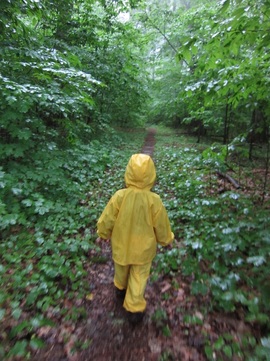 We all have a tendency to make quick judgments of our life experience. In judging experiences as bad, we often miss out on their richness. In judging experiences as good, we often feel loss as we predict their passing. Mindfulness practice has taught me that most of our judging causes unnecessary suffering. Through mindfulness, we learn to be with our experience exactly as it is in the moment, without judgment. We open ourselves to the richness God pours into life when we are not categorizing experience as good or bad. Paradoxically, I have found that releasing judgment increases my positive emotions. I experienced this on a rainy day this week. With lots of complaining around me about the rain, the cloudiness, and the cold, I took time to pay attention to my actual experience of rain, without judgment. When I stepped out of my ideas of rain into a direct experience of rain, I discovered feelings of gratitude and pleasure related to the water falling around me...the bright green colors of spring nourished by the water...the delightful sound of drops on my umbrella...the movement of the wet air on my face. I was reminded of this passage in Gilead by Marilynne Robinson (pp. 23 & 28), and flooded with a sense of blessing: Ludwig Feuerbach says a wonderful thing about baptism. I have it marked. He says "Water is the purest, clearest of liquids; in virtue of this its natural character it is the image of the spotless nature of the Divine Spirit. In short, water has a significance in itself, as water; it is on account of its natural quality that it is consecrated and selected as the vehicle of the Holy Spirit. So far there lies at the foundation of Baptism a beautiful, profound natural significance."... In giving up judgment, I was freed to access the joy of God's provision through rain, to recognize the drenching of the world in God's blessing...in water...as I walked along the path. One never knows what will show up when paying attention to the present moment! Once Jesus was asked by the Pharisees when the kingdom of God was coming, and he answered "The kingdom of God is not coming with things that can be observed; nor will they say 'Look, here it is!' or 'There it is!' For, in fact, the kingdom of God is among (or within) you." --Luke 17:20-21
So I am learning to stop and look here for the kingdom. Mindfulness has been incredibly helpful with this. Mindfulness gives me the tool I need to slow down and find God among us, within me. It shines light on my experience so that I find God, who it turns out is woven among the thoughts and feelings and physical sensations and urges that make up any given moment. I lost my first son to miscarriage at 14 weeks. Then I lost a child at 8 weeks, and then one at 12 weeks, and then one at 10 weeks. And then I lost a daughter to stillbirth at 37 weeks. Grief became a way of life for me, a finely honed craft that I practiced day in and day out, a 'new normal' that allowed me to keep up with my responsibilities but miss my children too. I grappled with bitterness and a deep sense of not belonging, of being treated unfairly, and I didn't see God as very good. But there was a kingdom experience in the midst of all that grief that carried me through those years. After my first loss, I tired one night of tossing and turning in bed and decided to take a midnight walk. It was September, and the streets of our small town were quiet. The air was warm, there was a gentle breeze. And as I walked under a tree (I remember the exact spot), I experienced an acute awareness of Jesus, suddenly and unexpectedly. He was with me, right beside me, closer than my breath. I have never forgotten the awe of that experience. God was with me -- Emmanuel, "God with us."
That is the kingdom, the way that we experience it within us. Sometimes God breaks through like he did for me in that moment of sleepless grief. Most of the time, we have to pause to pay attention if we are going to experience it. This morning, it took stopping to notice the breath flowing in and out of my lungs to notice that God was with me, giving me exactly what I needed. His kingdom is right here, right now. Stop. Breathe. Notice. Open to the awareness of God, who is among us--within you and me.
For it is the God who said, “Let light shine out of darkness,” who has shone in our hearts.
 Most stuff in life, I can't change. This is really hard, especially when it comes to unpleasant emotions. "Unpleasant" is a mild word for some of the emotions I feel. Deep, raging, empty despair would be a better description. Sometimes I feel really crappy. With all the self-help books, websites, and blogs floating around, one is given the impression that with a little more work, we can get rid of these unpleasant emotions. But the older I get, and the more work I do in the mental health field, the more I am convinced that painful emotions come with being human. Sure, we all have our own particular flavor--anxiety, sadness, anger, despair--but none of us feel great all the time. The idea that "normal" means "feeling good" is, statistically speaking, wrong. "Normal" means lots of different emotions--some with a clear explanation and others with no explanation at all. That is one of the reasons that the serenity prayer is coming to mean more to me as I age. We associate the first four lines of this prayer with Alcoholics Anonymous. "God grant me the serenity to accept the things I cannot change; courage to change the things I can; and wisdom to know the difference." (Of course, those of us from Generation X also associate it with Seinfeld...but that's a subject for another blog...) It takes wisdom to know the difference between things I can change and things I cannot. One thing that I cannot change is emotion. Feelings come and go, they rise and fall, they swell like waves of the ocean. Sometimes the emotional waters are quiet and peaceful, dappled with sunlight and caressed by a gentle breeze. Sometimes they are stormy--crashing waves, torrential rains. If my fundamental okayness is defined by feelings (if I am a "boat" on these waters), the storms are bad news, putting me in grave danger. One of my favorite metaphors within the tradition of mindfulness is that of the ocean. The ocean is full of life and beauty, containing hundreds of thousands of marine life forms, and its average depth is over 2.5 miles. It is huge, with less than 10% of its volume having been explored by humans to-date. The tides of the ocean respond to the gravitational pulls of the moon and sun, keeping us in a rhythmic dance with the universe. Nearly 20 million tons of gold are said to be floating in our world's oceans. You are like the ocean--the whole of it. Your thoughts and feelings are the surface of the ocean. When you identify with your thoughts and feelings, when your thoughts and feelings define your sense of who you are, your attention is focused on your surface. Underneath lies depth of life and beauty and resources that are unaffected by storms on the surface. Your thoughts and feelings come and go...come and go...come and go. They always will, as long as you have breath. But you are deeper, richer, calmer, bigger than these surface experiences. No matter the intensity of your emotion, you are...at a deeper level...okay in any weather. You are the ocean.
The "serenity prayer" reminds me that I don't have to fight the storms of emotion and thought that pass through my life, if for no other reason than that I can't. Who can stop a storm in the middle of the ocean? No one. That raging despair that sneaks up on me on a Sunday afternoon out of nowhere? Totally out of my control, not something I can change. Nor do I need to change it in order to be okay. Here is what is in my control: cultivating life habits (including thinking habits) that send me into deeper, calmer waters -- that get my attention unglued from the huge emotional waves on the surface of my being. I can't stop the emotion; I can watch the storms with curiosity and openness. (Ever stood outside in the middle of a summer thunderstorm? Amazing!) Practically, this means observing my experiences -- thoughts, feelings, physical sensations, and urges -- with an attitude of self-compassion and an awareness of God's presence. It means taking time to meditate, giving myself the silence and space needed to get in touch with a deeper sense of myself beyond the feelings passing through. I haven't found any shortcuts to meditation when it comes to living wholeheartedly in the midst of life's storms. If you are new to mindfulness meditation and are looking for some tools to cultivate this sense of depth and calm through the storms, may I suggest starting with the meditations of Mark Williams? These lovely, brief meditation guides pair seamlessly with his very helpful book entitled Mindfulness: An Eight-Week Plan for Finding Peace in a Frantic World. I also recommend to you the ancient practice of Lectio Devina -- meditating on (slowly chewing on) the words of scripture, creating the space for God's presence and truth to seep into the depths of your soul through the reading of His word. "Now may the Lord of peace himself give you peace at all times and in every way. The Lord be with all of you." (2 Thessalonians 3:16). Through any weather. Peace.  It's the little things. I mean, the really little things. Joy resides in the little things. The things so small that we don't notice them unless we're looking, unless we're slowing down and keeping our eyes wide open. The very, very little things. How little? Well, here's the crazy activity I found myself immersed in this evening. The moon, round and brilliant, peeked through the one sliver of my bathroom window that was not covered by ice. I stood, brushing my teeth. I turned out the light. And the moonlight poured over me, bathed my mundane act of toothbrushing in the beauty of light sent from the burning ball of fire that we call the sun, bouncing off the stone-cold sphere we call the moon, and pouring into my humble bathroom, pouring over my upturned face. Bathing my toothbrushing in breathtaking beauty. I was taken off-guard -- my eyes unexpectedly opened to a gift and barely able to believe it was mine. As I gazed at the moon, the simple and profound beauty of my whole bathroom began to seep into my soul--the humble bathroom took on a beauty that I had not, until that moment, slowed down enough to see. The gift of the moonlight woke me up. Before I knew it, I had turned the light back on and was snapping photos of my bathroom. That faucet--how exquisite! That white tile floor--what a delight! That stack of folded towels--how comforting! That ancient fixture on the cabinet door--what a symbol of constancy through the ages! (I did warn you that the activity was crazy, did I not?) And so there I was with the little things...the very, very little things. The very, very little things crammed full of joy. I've just started All the Light We Cannot See by Anthony Doerr. In the chapter I read this morning, Marie-Laure has recently gone blind and is spending time "in the laboratory of Dr. Geffard, an aging mollusk expert whose beard smells permanently of damp wool" (page 29). Without sight, she is finding new avenues of exploring her world, living life at a slower pace. A Carinaria shell is simultaneously light and heavy, hard and soft, smooth and rough. The murex Dr. Geffard keeps on his desk can entertain her for a half hour, the hollow spines, the ridged whorls, the deep entrance; it's a forest of spikes and caves and textures; it's a kingdom. Her hands move ceaselessly, gathering, probing, testing. "To really touch something...is to love it." This is worship, is it not? To slow down enough to touch, to taste, to see, to hear and smell the work of God, the master creator. To experience reality and find God's joy therein. "Oh taste and see that the Lord is good," says Psalm 34:8. I used to think this meant metaphorically. Now I view it quite literally. Let your five senses ground you in God's goodness. Taste, see, touch, hear, smell. Pay attention to what is happening in your five senses, in the present moment, and know the goodness of God. My pastor recently said "to worship is to wake up to reality." He was right.
I learned two new words yesterday.
FOMO drove my technology use for a long time. I had a frequent sense that I was missing out on what "everyone else" was doing. Scanning Facebook ensured me that I would be there for the good stuff, that I would be in the know. Ironically, FOMO simply increased my likelihood of missing out on my life experience. It turned out that I couldn't be on Facebook or Pinterest while also experiencing the richness of the physical world in which I live. Trying not to miss out through technological connections meant that I was not gazing at the beauty of the moon or drinking in the scent of sauteing mushrooms or working with my hands to create something new. It turned out that not missing the technological world meant that I was missing the stuff that really mattered to me. Technology was interfering with the values according to which I wanted to live my life. There is no question that technology is changing our lives--it's changing the way we relate to our moment-to-moment experience. Our gadgets are frequently creating barriers between ourselves and awareness of the present moment. We have less awareness of our physical, emotional, and cognitive realities when we are wrapped up in a technological presentation of an alternate reality. The spiritual implications of these changes? We are at risk of putting technology between ourselves and awareness of God's presence. I had the privilege of exploring this theme--the relationship between Faith and Technology--through a brief panel discussion yesterday with two insightful friends at Calvin College. While we never used the word mindfulness, the astute observer will hear it woven through all :). (I recommend starting the video around minute 2. Unless you enjoy the sound of college students milling about, waiting for chapel to begin.) 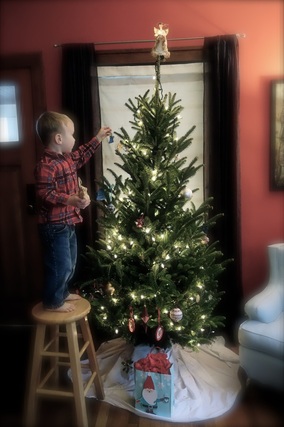 The Christmas story gets me thinking. How is it that some people saw Jesus--noticed His arrival--and so many others didn't? Some people had more of a chance than others--a few with personal angel appearances. (How I wish that God spoke to me through "heavenly hosts" as He did to the shepherds on that first Christmas night!) But lots of people were in the same boat as you and I--they would only notice Jesus if they were really paying attention. Simeon and Anna fell into this category. They noticed Jesus because they were paying attention. They had both been paying attention for life, had both made a profession out of paying attention to God in the temple. So when the baby Jesus was brought for dedication, they didn't just see another baby whose parents were following "the custom of the law"--they saw salvation, light, glory, and redemption (Luke 2:22-39). They blessed God and gave thanks. They noticed. They experienced God's full goodness in that moment. It is SO common that I don't notice God. I have gone through the majority of my life feeling distant from God. Close relationships aren't my forté, so I've just assumed that this applies to God as well. Prayer is hard because I don't have that much to say to anyone, let alone someone invisible. I crave intimacy with God, but for a long time, I gave up on finding it. I figured I didn't have the skill or discipline or...whatever it was I lacked in order to experience God's presence on a regular basis. Without a choir of angels singing a personalized message to me, I was out of regular communication with God and figured it was my fault. And then I learned mindfulness. Mindfulness taught me the art of paying attention to the present moment without judgment. I learned to notice my thoughts and take them less seriously, to experience life in ways other than thinking about it over and over. This meant that I started to experience God in ways that I couldn't do by ruminating. I started to notice God. I woke up to the fact that intimacy with God is not something that I create or work for. It's just that God is with me all the time. Everywhere. Right now, in my living room, as I type this sentence. Right now, with you, as you read this sentence. In the closest kind of way--the way in which we don't have to come up with anything to say to Him because we are just with Him, together, all the time. This is really good news. God's arrival on earth, and His ongoing presence with us through the Holy Spirit, are not things we have to work to connect with. We only have to notice that He's already here. Any work involved is just in slowing down enough to open our eyes and look. To make eye contact with Him and smile, just as we would with anyone else we care about. To say "hi." I don't have to feel anything in particular when I notice God, don't have to ask for anything. I just need to notice that whatever the thoughts and feelings rippling on the surface of my being, the longing way down deep in my soul is met. God is with me. "Emmanuel." Giving me this breath...and then the next...and then the next. In fact, He is closer than this air that I breathe. This is intimacy, this is togetherness. Noticing. Being aware. Paying attention to the only moment in which I ever connect with God--right now. When I do this--wake up to the moment and notice God--I am often overcome with those same sentiments expressed by the heavenly hosts who alerted the shepherds of Jesus' birth. "Glory to God in the highest, and on earth peace, good will toward all!" (Luke 2:14). Peace and good will to you as you celebrate the Christ child this year--God with us! The snow started early in Michigan this year, sprinkling our conversations with constant commentary (i.e. grumbling) about the weather. Amidst the grumbling, there is one frequent comment that goes something like this: "I love the snow for the first couple of snowfalls each year--it's so beautiful. But by the time February rolls around, I'll be thinking about moving to Florida." This gets me thinking. What changes between November and February that causes us to no longer see the beauty of snow? The snow itself doesn't change. A snowflake is just as stunning whenever it falls, each miraculously shaped in its own unique way (how is that possible??!). If I take one photo of freshly fallen snow in November and another in February, there will be little difference between the two.
These types of experiences allow us the rare opportunity of seeing our experience through fresh eyes, of noticing old things (snow, hot showers, warm beds, walking...) as if they are new. Which, in fact, they are--no one moment exactly the same as another. (Need I point out the metaphor of the snowflake here?) To see these moment-to-moment, God-saturated, one-of-a-kind experiences for what they are. Miracles. Gifts. Life. "Behold, I am making all things new" says God in Revelation 21:5. My pastor assures us that this new-making is not just something we are waiting around for until we get to heaven--it's already happening. In the here and now, God is making all things new. When I see life with active wonder...when I enter each experience as if for the very first time...I find that all things are indeed being made new. This snow flake, brand new--I've never seen this design before! This warm shower, brand new--I've never felt this one before! This step, brand new--what a miracle that my body is supported on my foot in this way, in this moment! This breath, brand new--what a gift, my body breathing itself without any conscious direction from me! This glass of cold water, brand new--how will this particular water catch the light or feel on my throat? All things, made new, moment to moment. So I am practicing using fresh eyes, coming to each moment as if it is the first time I have experienced it...because it is. Surely this is part of what it means to enter the kingdom like little children (Matthew 18:3)--to be full of wonder and amazement as the world is rolled out before me, moment to moment. To walk the journey of life in the same way that a two year old walks down a sidewalk, stopping to notice and examine and experience each thing -- a stick! a leaf! a stone! a flag! To recognize that in each moment, I am experiencing something new that I have never before experienced--bringing freshness and openness to the experience in a way that allows me to live each moment of life as it actually is rather than being blinded by how I assume it to be.
"Behold, I am making all things new."  I am learning something new: I have everything I need. I've always known this conceptually. I grew up reciting the Twenty-third Psalm, beginning with these words: The Lord is my Shepherd--I have everything I need. I knew that I could theoretically be content in every circumstance (Phil. 4:12), and at Jesus' encouragement I had considered the lilies of the field (Matthew 6:28). I understood what grace meant--that God loves me unconditionally, and that I do not need to change anything to be accepted. But... My wardrobe was not trendy enough. My mood was not happy enough. My stomach was not flat enough. My city was not gritty enough. My personality was not warm enough. My people were not kind enough. My God was not helpful enough. This was a miserable way to live. God began to slowly break down these ideas of "not enough" fifteen years ago, when I married a wise and gracious man who has shaken up my thinking in all kinds of areas. But He stepped up the pace six years ago when we moved into a new house that needed LOTS of work. We were paralyzed by the enormity of the Pandora's Box of projects, and the work was not going quickly enough. For a few weeks, our kitchen was gutted and a temporary kitchen set up in the dining room. There was ugly carpet everywhere. Our furnace blasted so loudly that we could barely carry on a conversation, and our bathroom was a horrendous assortment of oddly placed amenities. During a season when we desperately needed new friends, there was no way we were having people over to our house, and it was clear that life was not the way it was supposed to be. I was not happy. In the midst of my despair over this situation and others, God spoke to me. You have everything you need. It is enough. With great reluctance, I was forced to acknowledge that if I couldn't practice contentment when my kitchen was disassembled, I would not be content when my kitchen was assembled. As impossible as it seemed, I was going to have to practice contentment with my house exactly as it was--unfinished and messy. I couldn't continue to postpone contentment until my life was deserving of it. To be happy, I was going to have to be content with my life as it had been given, not only as I thought it was supposed to be. I was going to have to practice living my life as if it was exactly what I had chosen. Practice has been the key word. Contentment is a discipline that is practiced in the mind and the heart, over and over and over. And mindfulness has provided me with the tool I've needed for this practice. First of all, mindfulness allows me to notice all of those discontented thoughts floating in my mind (of which I was largely unaware in the past). Secondly, mindfulness trains me in accepting each moment exactly as it is, focusing in on the calm core beneath the tattered fringes. Thirdly, mindfulness helps me notice and experience what is good in each situation (and there is always something, no matter how dire the circumstance). Fourthly, mindfulness opens my heart so that I can detect God's presence, who whispers to me every time that I am enough, exactly as I am, fully covered by His grace, lovingly enveloped in His provision. All of this is right there in the Twenty-third Psalm that I recited as a kid: I have everything I need. In this moment, in this life, exactly as it is. My cup runs over.
 My three year old had performance anxiety on Monday. It was his turn at daycare to bring in a "Me Museum," a collection of photos from his life to display on the wall throughout the week. He worked on it on Saturday--choosing the photos, gluing them onto a large piece of paper, decorating around the photos with his favorite color (green). Sunday evening, he began saying "I don't want to do a Me Museum...I don't want to go to daycare" in a repetitive loop. (If you've ever heard a three-year-old whine, you know the type of loop I mean.) The poor kid has a psychologist for a mother, leading to questions like "what are you feeling?" and "which part are you nervous about?" Turns out that he was nervous about explaining his Me Museum during group time. When I tried to get an idea from him of the format for these presentations, he simply made the the classic "presentation" hand motion repetitively, slowly and seriously. This cracked me up! (Did I mention that he's only three?) 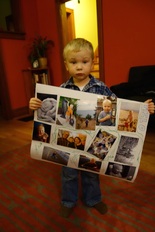 On Monday morning, he whined and resisted throughout breakfast and his morning routine. Then as we were preparing to head out the door, he picked up his Me Museum, gazed at it for a bit, and announced "I like my Me Museum! I'm not nervous anymore--I'm ready to tell the other people about it!" He held onto it throughout the car ride and marched proudly into daycare to hang it up. And by all of his teachers' accounts, he kicked butt on his morning presentation. When I picked him up, he looked proud and told me it was "fun," but he had moved on to other things--the Me Museum was no longer an issue. This emotional experience is deeply familiar to me. Excited about a presentation opportunity, prepared, nervous, don't want to do it (with thoughts of 'how can I get out of this'), adrenaline rush at the last minute, loving the actual event, feeling of "whatever" afterwards. I was shocked to see this familiar pattern in such a small person. It brought me back to a few of the core principles of mindfulness that I find so helpful.
Ultimately, my son's experience reminded me that unpleasant feelings are not an indication that we are doing something wrong--difficult emotions are inherent to our human experience, and are even one of the ways that we reflect God's image. When I experience those intense waves of emotion, I can respond to myself with kindness and compassion. I can be open to what the experience will teach me and know that "this too shall pass." I can't help but think that God views us with some of the same compassion and loving humor that I felt toward my son through his anxiety about his "big performance" this week. That kind of puts my own performance anxieties into perspective :). © Irene Kraegel 2014 |
Author
I am Irene Kraegel. I am licensed as a clinical psychologist and teach mindfulness on a faith-based university campus. I practice mindfulness because it opens me up to God (a.k.a. brings joy). I am writing here in hopes of sharing some of my experiences and thoughts related to the practice of mindfulness in the life of a Christian. Thanks for reading! Books
Blog archives
December 2023
|
